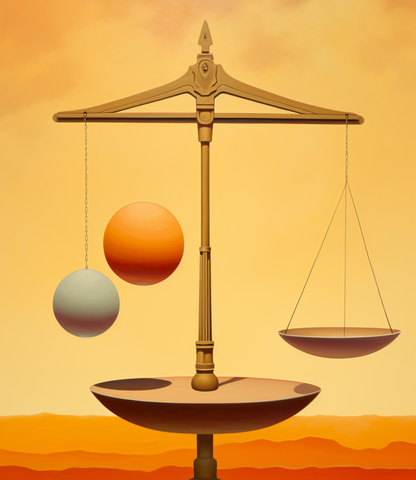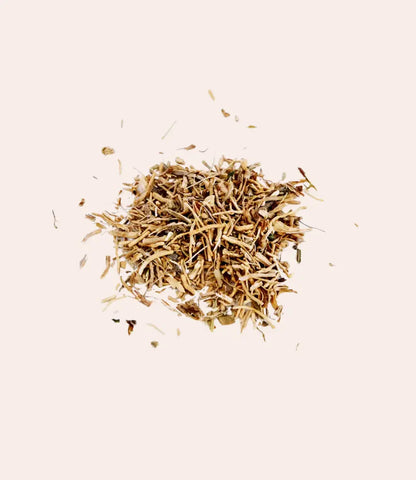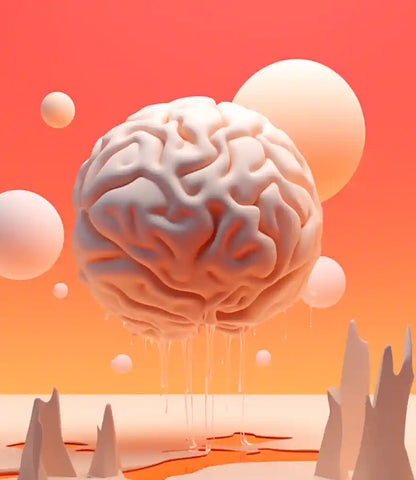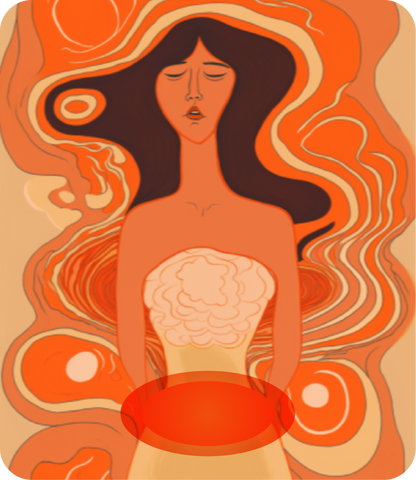
CBD and Menstruation Migraines: Understanding the Connection
Migraines are a common problem that many women experience during their menstrual cycles. These migraines can be severe and debilitating, often leading to missed work or school days. While there are many treatments available, some women are turning to CBD as a natural remedy.
CBD, or cannabidiol, is a non-psychoactive compound found in the cannabis plant that has been shown to have anti-inflammatory and pain-relieving properties. In this article, we will explore the connection between CBD and menstruation migraines.
Related to: Headaches and Periods: Is there a connection?
Migraines and People with Wombs
Migraines are a common neurological condition that affects both men and women, but there is a higher prevalence of migraines among women. According to the Migraine Research Foundation, about 18% of women in the United States suffer from migraines, while only 6% of men do. Migraines are also more likely to occur in women during their reproductive years, indicating a possible hormonal link. In fact, menstruation migraines, which occur during a woman's menstrual cycle, are a subtype of migraine that affects only women.
While both men and women can experience migraines, there are some differences in the way the condition presents itself. For example, women tend to experience migraines with more frequency, longer duration, and greater severity than men. Women may also experience different symptoms, such as nausea and vomiting, than men. Additionally, certain triggers for migraines may be more common in women than men, such as hormonal changes, stress, and certain foods.
The reasons behind these gender differences in migraines are not yet fully understood. One possible explanation is the role of hormones. Estrogen, for example, has been shown to affect the way that migraines occur in women. When estrogen levels drop, as they do during menstruation, women may be more susceptible to migraines. However, more research is needed to fully understand the link between hormones and migraines. Overall, while migraines affect both men and women, the condition appears to be more prevalent and severe in women, indicating a need for further research and understanding of the gender differences in migraines.
What Causes Menstruation Migraines?
As described before, menstruation migraines are a type of headache that occurs in women during their menstrual cycles. These migraines are thought to be caused by changes in hormone levels, particularly a drop in estrogen levels. Other triggers include stress, lack of sleep, and certain foods. Symptoms of menstruation migraines can include intense pain, nausea, and sensitivity to light and sound.
There are different types of migraines, and menstruation migraines are among the most common.
These migraines typically occur in women who have a history of migraines or a family history of migraines. During a woman's menstrual cycle, the levels of estrogen and progesterone in her body fluctuate. The drop in estrogen levels that occurs during menstruation can trigger a migraine.
In addition to hormonal changes, other triggers that can cause menstruation migraines include stress, lack of sleep, and certain foods. Stress is a common trigger for migraines, and women may experience more stress during their menstrual cycle due to physical discomfort and mood changes. Lack of sleep can also trigger migraines, and women may have trouble sleeping during their menstrual cycle due to discomfort or hormonal changes. Certain foods, such as chocolate, cheese, and wine, are known to trigger migraines in some people.
How CBD Can Help
CBD has been shown to have anti-inflammatory and pain-relieving properties, making it a potential treatment option for menstruation migraines. CBD has proven its effectiveness in reducing the frequency of migraines in patients with chronic migraine headaches.
CBD may also help alleviate some of the other symptoms associated with menstruation migraines, such as nausea and sensitivity to light and sound. This is because CBD interacts with the body's endocannabinoid system, which plays a role in regulating pain, mood, and appetite.
The endocannabinoid system is a complex cell-signaling system that plays a role in regulating various physiological processes, including pain, mood, appetite, and sleep. The system is composed of three main components: endocannabinoids, receptors, and enzymes. Endocannabinoids are molecules that are similar in structure to cannabinoids, the active compounds in cannabis. These molecules are produced by the body and act as neurotransmitters, sending signals between cells. Receptors are proteins that are located on the surface of cells and bind to specific molecules, including endocannabinoids and cannabinoids. Enzymes are proteins that break down molecules, including endocannabinoids.
CBD interacts with the body's endocannabinoid system by binding to receptors, specifically the CB1 and CB2 receptors. CB1 receptors are primarily located in the brain and central nervous system, while CB2 receptors are primarily located in the immune system and peripheral tissues. When CBD binds to these receptors, it can modulate the activity of other neurotransmitters and signaling molecules, including endocannabinoids.
CBD has been shown to have anti-inflammatory and pain-relieving properties, which can help alleviate the symptoms of migraines.
More research is needed to fully understand the effects of CBD on migraines and other menstrual symptoms. However, studies have shown promising results, suggesting that CBD may be a safe and effective treatment option for women experiencing menstruation migraines. It is important to note that not all CBD products are created equal and that it is important to choose high-quality, third-party-tested products to ensure purity and potency.
CBD is available in various forms, including oils, capsules, gummies, and topicals. When using CBD for migraines, it is important to start with a low dose and gradually increase as needed. It is also important to speak with a healthcare provider before using CBD, especially if taking any other medications.
Related to: Everything you need to know about The Cycle Duo
In addition to CBD, other natural remedies may help alleviate menstruation migraines. These include:
- Magnesium: Magnesium has been shown to help reduce the frequency and severity of migraines. It is believed to work by relaxing blood vessels and reducing inflammation. Foods high in magnesium include spinach, almonds, avocados, and black beans.
- Ginger: Ginger has anti-inflammatory properties and may help alleviate nausea associated with migraines. It can be consumed in various forms, such as tea, capsules, or raw ginger.
- Exercise: Regular exercise has been shown to help reduce the frequency and severity of migraines. It is believed to work by reducing stress and improving blood flow.
- Mind-body techniques: Mind-body techniques such as yoga, meditation, and deep breathing have been shown to help reduce the frequency and severity of migraines. These techniques may help reduce stress and improve relaxation.
Conclusion
Menstruation migraines can be a challenging problem for many women. While there are many treatment options available, some women are turning to natural remedies like CBD to help alleviate their symptoms. CBD has been shown to have anti-inflammatory and pain-relieving properties, making it a potential treatment option for menstruation migraines. It is important to speak with a healthcare provider before using CBD or any other natural remedies, especially if taking any other medications.
Sources:
Baron, E.P. (2018), Medicinal Properties of Cannabinoids, Terpenes, and Flavonoids in Cannabis, and Benefits in Migraine, Headache, and Pain: An Update on Current Evidence and Cannabis Science. Headache: The Journal of Head and Face Pain, 58: 1139-1186. https://doi.org/10.1111/head.13345
Russo EB. The Case for the Entourage Effect and Conventional Breeding of Clinical Cannabis: No "Strain," No Gain. Front Plant Sci. 2019 Jan 9;9:1969. https://doi.org/10.3389/fpls.2018.01969
Sarchielli P, Pini LA, Coppola F, Rossi C, Baldi A, Mancini ML, Calabresi P. Endocannabinoids in chronic migraine: CSF findings suggest a system failure. Neuropsychopharmacology. 2007 Jun;32(6):1384-90. doi: 10.1038/sj.npp.1301246. Epub 2006 Nov 22. Erratum in: Neuropsychopharmacology. 2007 Jun;32(6):1432. PMID: 17119542. DOI: 10.1038/sj.npp.1301246














































